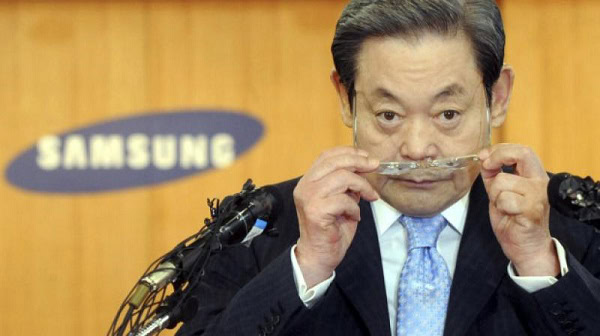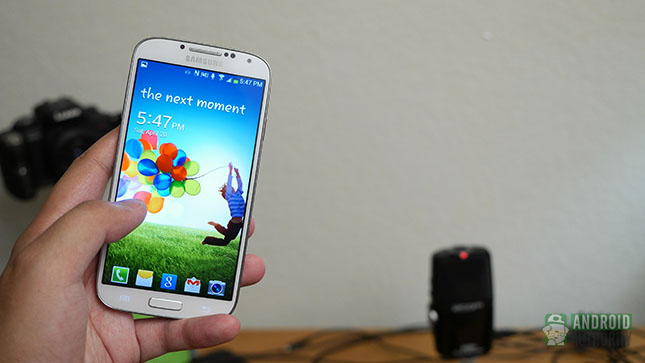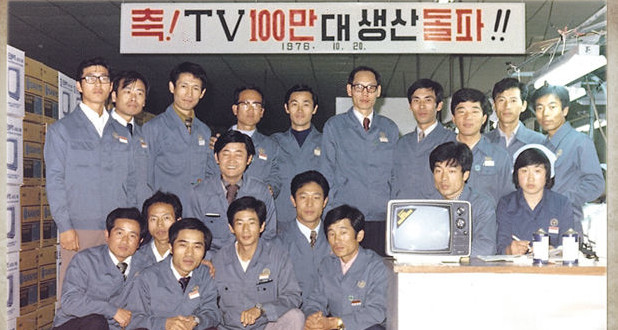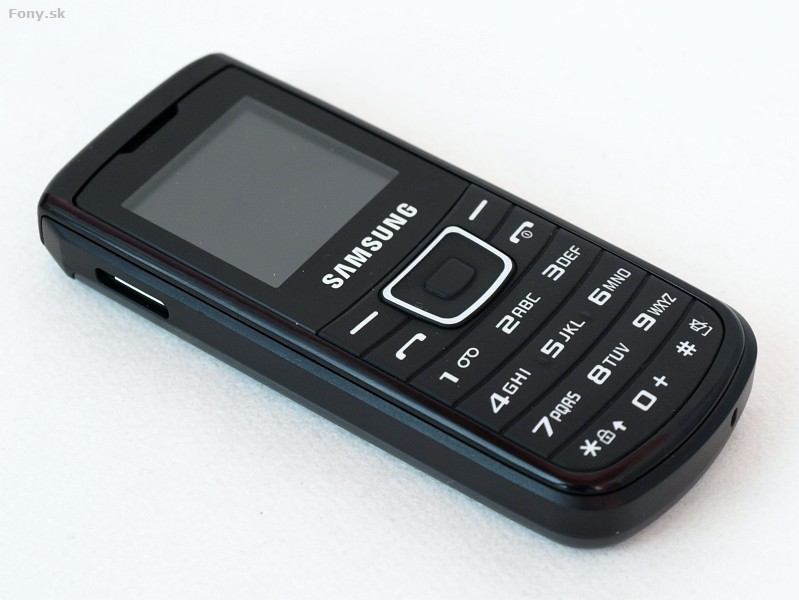
One of the kings of the mobile world, Samsung has built itself into a massive mobile and electronics empire, though its story actually starts much earlier — in 1938, actually. Over the years the company has evolved significantly, bringing innovation into countless markets going well beyond just mobile and electronics.
Samsung’s story is an interesting one, full of both highs and lows. Let’s explore some of the more interesting facts about this Korean giant.
Right from its founding, Lee Byung-chul believed his new company was the start of something much bigger. The company’s name choice reflected this ambition. Built from the Korean words sam (three) and sung (stars), the tri-star symbol (三星) is said to culturally represent something “big, numerous, and powerful.”
This was a pretty bold claim for a trading company of forty employees dealing in locally grown produce and the creation of noodles. Since then, Samsung’s found its way into a lot more than just noodle-making, which leads us to another interesting fact.
Samsung employs over 489,000 people
While some of you may already know this, Samsung is way more than just an electronics and mobile producer. The Samsung Group has 59 unlisted companies and 19 listed, all with their primary listings on the Korea exchange. These companies range from construction to financial services, shipbuilding, and even medical industries. The company’s combined efforts employ over 489,000 people, across 80 different countries, including Korea.
Another fun fact: Samsung’s construction division built the Burj Khalifa skyscraper in Dubai (pictured above), which is the tallest building in the world (as of this writing) at 2,722 feet.
The Samsung Group is a big part of South Korea’s GDP

We have already mentioned how many companies and how many employees are part of the total Samsung Group. All of those subsidiaries and all of those workers means Samsung takes up a massive amount of the total GDP of its home country, South Korea. In 2017, CNN reported the total resources of the Samsung Group made up about 15 percent of the country’s GDP. On the Korean Stock Exchange, over 20 percent of its market value is based on various Samsung Group companies. Most of that comes from just one company, Samsung Electronics.
Samsung’s electronic ambitions began in 1970 with a black and white TV
The first electronics product ever produced by Samsung was a black and white TV in 1970. The company expanded a great deal in the following decades, and in 1986 entered into the mobile game with a car phone. While Samsung’s early TV efforts were fairly well received, the first car phone from the company was poorly received and sold terribly.
Samsung’s logo has only changed three times.

While the Samsung logo changed a few times prior to the 70s, after this, it stayed pretty consistent, changing only three times until the current logo was settled on in 1993.
If it ain’t broke, don’t fix it.
Samsung Electronics really began in 1993

While Samsung has been involved with electronics and the mobile industry for many decades now, it was in 1993 that Samsung Chairman Lee Kun Hee (above) pushed forward a new management philosophy encouraging product quality as one of its core tenets. He encouraged his staff to “change everything except for their family.” To further promote this notion, Samsung’s Human Resource Development Center created new training and development courses to help with this professional growth.
It didn’t truly sink in until 1995…
Saying you’re going to focus on quality and taking that all important step across the threshold are often two different things, and they certainly were for Samsung. In 1995, Kun-hee Lee would reportedly find himself frustrated with the quality of his products and the company’s lack of change. To drive his point home, numerous phones were stacked up high, joined by televisions, fax machines, and other gear. Lee and his board of directors then proceeded to destroy each and one of these products, even going so far as to break the cases and screens using heavy hammers.
As the story goes, Lee made sure around 2000 employees witnessed this. That day, more than $50 million worth of hardware was destroyed, and a new Samsung was finally born. Following this, the era of “new management” truly began, marked by quick growth and global success, which has only continued to gain momentum in the decades to follow.
Samsung fans can thank Lee and his board, and their willingness to perform an extreme drop test, for the products they enjoy today. Since that day, they’ve certainly created a number of firsts in the electronic industry.
First CDMA phone

The Samsung SCH-100 released back in 1996, making it the very first phone to utilize CDMA technology. Being the first to use a standard many see as restrictive and inferior to GSM probably isn’t much to brag about now. At the time, CDMA was a new technology and — before fast 4G/LTE technologies — actually had some real advantages over GSM.
This might not be the case anymore, but Samsung still deserves some props for its willingness to try a new standard.
First watch phone
Yes, some Gear family variants have allowed you to text or even make calls without tethering your phone, but the watch phone market actually begins much earlier, in 1999. Samsung was the first pioneer, and one of the only ones since, to build a watch that doubled as a phone — dubbed the Samsung SPH-WP10.
This unique watch phone could not only tell time, but also make phone calls for up to 90 minutes. After that, the battery would be depleted and you’d have to run over to a charger. The screen was of the back-lit monochrome LCD variety, and there were physical buttons navigating around the menu. There were even voice commands for dialing your contacts — fancy.
Not surprisingly, the almost Pip-Boy looking device didn’t find commercial success, but it is interesting to know that Samsung’s smartwatch making days actually begin long before the Gear family.
Samsung jumped into the smartphone game long before Android and iOS

Samsung may not be the first to make a smartphone, but it was one of the first players to truly get aggressive about the market, introducing the first “PDA phone” with a color display in the U.S. market in 2001. Called the SPH-i300, this bad boy was designed for Sprint’s network and ran on Palm OS, with all the functions of a normal PDA, with the added bonus of making calls.
So yes, the SPH-i300 can basically be considered Samsung’s first go at making “a smartphone” for the U.S. market. Wow, things sure have changed a lot since then.
The top selling Samsung mobile phone is the E1100
Samsung’s top-selling mobile phone of all time may not be what you think it is. It’s actually the Samsung E1110, a feature phone from 2009. By the time production of the phone ended in 2012, Samsung had sold a whopping 150 million units. That makes this device the 8th best selling mobile phone of all time.
Samsung’s best selling smartphone is the Galaxy S4

The second-best selling Samsung phone, in 14th place overall among mobile phones is the Galaxy S4, with 80 million total sales. It’s the best selling Samsung smartphone of all time, the best selling Android-based phone of all time, and the third-best selling smartphone ever, behind only Apple’s iPhone 6 and 6 Plus and the Symbian OS-based Nokia 5230.
Samsung had a chance to buy the Android OS, but decided not to

Speaking of Android phones, Samsung had a chance to purchase the startup responsible for the operating system — and passed.
In his book, Dogfight: How Apple and Google Went to War and Started a Revolution, author Fred Vogelstein wrote about how back in late 2004, Android’s founders were looking for money to keep their startup going. All of Android’s eight team members flew to South Korea to meet with 20 of Samsung’s executives. The Android team showed the assembled Samsung executives their plans for an OS designed for mobile phones.
However, according to quotes from Android co-founder Andy Rubin, the immediate response from Samsung’s team following the presentation was complete silence. Rubin then said the Samsung team expressed disbelief that this small startup would be able to make this kind of operating system. Rubin added, “They laughed me out of the boardroom.”
Just two weeks later, in early 2005, Rubin and the Android team made their pitch to Google, which decided to acquire the startup for $50 million. The rest is history, as Google and the Android team developed the OS and officially launched it in October 2008. You have to wonder what would have happened to Android if Samsung’s team stopped laughing and bought the startup. Perhaps it would be Samsung dominating the mobile OS business, not Google.
Whether you’re a Samsung fan or not, the company has an interesting past, with its fair share of successes and failures. What do you think is the most interesting thing about Samsung? Any interesting facts we missed? Share them with us in the comments below.
from Android Authority https://ift.tt/2GppfKq






No comments:
Post a Comment